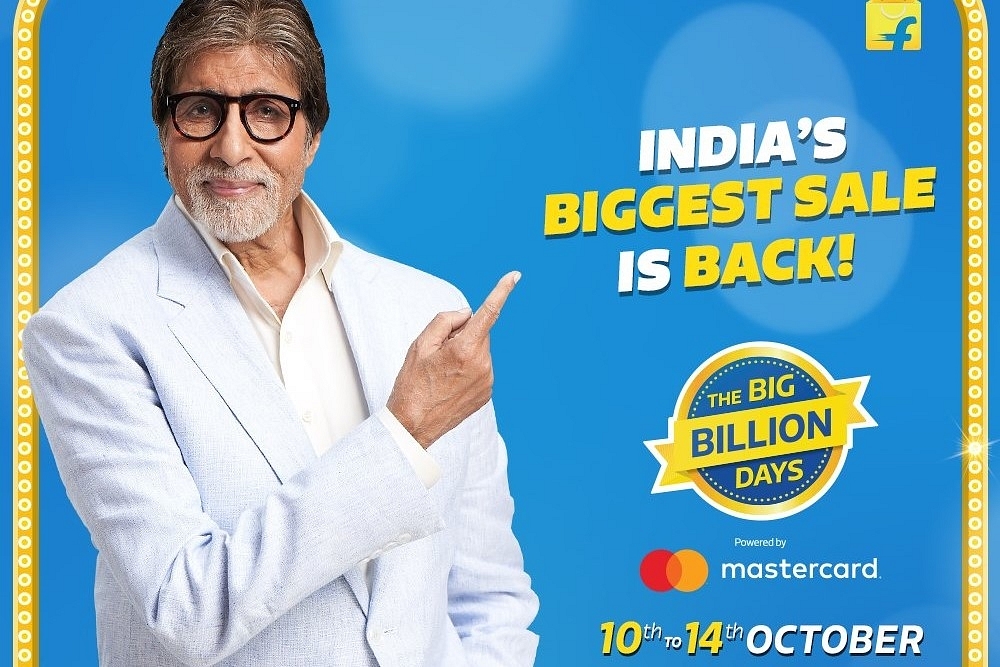Insta
Indian Online Shoppers Spend Rs 15,000 Crore in Festival Season; Flipkart Beats Amazon Claiming 70 Per Cent Market Share

Flipkart roped in the who’s who of Bollywood and Cricket to promote the sale. Photo Credits: Twitter/Flipkart.
A report by RedSeer Consulting states that overall online retail sales surged to over $ 2.3 billion (approx. Rs. 15,000 crore), 60% higher than the last year.
The five-day event, which included Flipkart’s Big Billion Days and Amazon’s The Great Indian Shopping Festival, was similar in size and scope to global shopping events like China’s Singles Day and the Cyber Monday in United States. The Amazon festival ran for an extra day, still Flipkart claimed 70% market share in the sale.
Flipkart claimed 85 per cent share in the fashion category of the online market. This isn’t surprising since Flipkart owns Myntra and Jabong, two of the biggest players in online fashion. Though online sales are dominated by electronics, especially smartphones, fashion and home appliances are an emerging category.
According to a report by RedSeer Consulting, sales of large appliances online have doubled between 2015 and 2017 from $430 million to $900 million. The category’s online sale is now expected to grow at 33% per year and reach $1.2 billion by the end of 2018, as reported by Livemint.
Though Amazon did not reveal sales figures, it noted that more than 82% of new customers who shopped online on its website were from smaller towns & cities. This reflects wider and deeper penetration of internet access and digital literacy in India. It also stated that customers from 99% of India’s serviceable pin-codes had placed an order during the sale.
Amazon's Hindi Website which was launched recently, saw 2.4 times new customers coming and shopping on the platform as compared to a non-sales day. This positive trend points towards the untapped potential of making the internet linguistically democratic.
Support Swarajya's 50 Ground Reports Project & Sponsor A Story
Every general election Swarajya does a 50 ground reports project.
Aimed only at serious readers and those who appreciate the nuances of political undercurrents, the project provides a sense of India's electoral landscape. As you know, these reports are produced after considerable investment of travel, time and effort on the ground.
This time too we've kicked off the project in style and have covered over 30 constituencies already. If you're someone who appreciates such work and have enjoyed our coverage please consider sponsoring a ground report for just Rs 2999 to Rs 19,999 - it goes a long way in helping us produce more quality reportage.
You can also back this project by becoming a subscriber for as little as Rs 999 - so do click on this links and choose a plan that suits you and back us.
Click below to contribute.
Latest